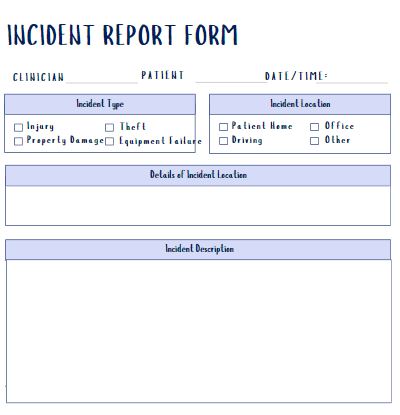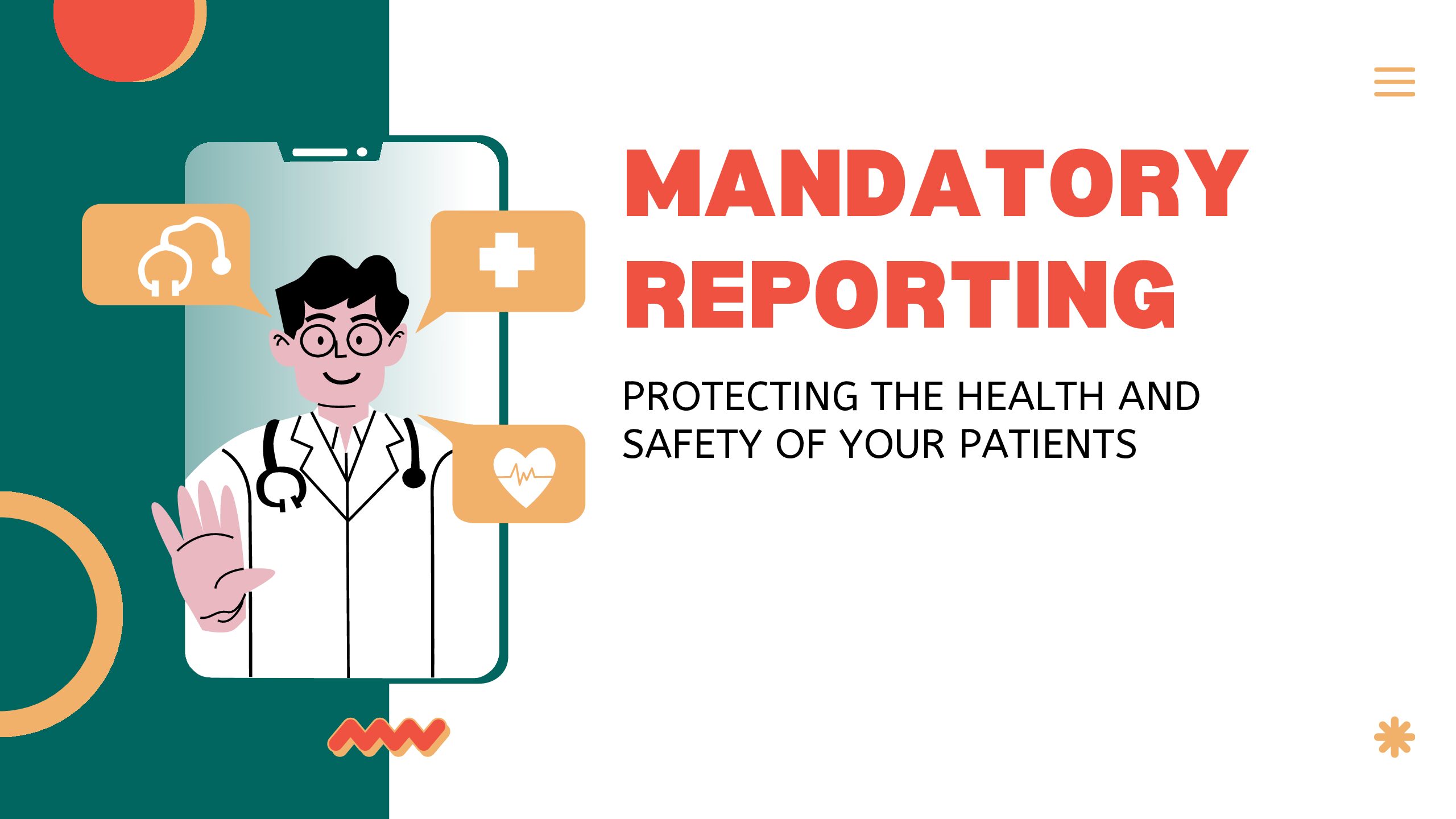An incident report is a special kind of report that you write when something unusual or unexpected happens during your visit with a patient. This could be anything that isn’t part of the normal care routine.
When to Write an Incident Report
An incident report is needed if:
- The Patient Falls: If the patient slips, trips, or falls, even if they don’t seem hurt.
- An Injury Happens: If the patient, a family member, or even you get hurt in any way.
- A Medication or Care Error: If the wrong medicine is given, or if medicine is given at the wrong time or if there a different error in patient care.
- Behavior Changes: If the patient suddenly becomes very confused, angry, or upset.
- Safety Concerns: If something dangerous happens or almost happens, like if a patient tries to leave the house when they shouldn’t or if you feel uncomfortable or unsafe.
- Property Damage: If anything breaks or is damaged during the visit.
- Blood or Fluid Exposure: If you are exposed to blood or body fluids during the visit.
How to Write an Incident Report
- Write It Right Away: Write the report as soon as the incident happens. This way, the details are fresh in your mind.
- Stick to the Facts: Describe exactly what happened. Don’t guess or add your opinions. Just describe what you saw and heard.
- Be Specific: Include details like the time, place, and exactly what happened. If someone said something important, use their exact words.
- Report Injuries: If anyone was hurt, describe the injury and what was done to help.
- Include Witnesses: If someone else saw what happened, include their name and what they saw.
- Stay Calm: Use clear and simple words. Don’t blame anyone in the report, just describe what happened.
- Tell Your Supervisor: Always report the incident to your supervisor as soon as possible.
Why Incident Reports Matter
- Safety: Incident reports help keep patients and caregivers safe by making sure everyone knows about any problems or risk.
- Improvement: These reports help the care team learn from mistakes and prevent them from happening again.
- Legal Protection: Documenting incidents protects you and the agency by showing that you reported what happened.





0 Comments